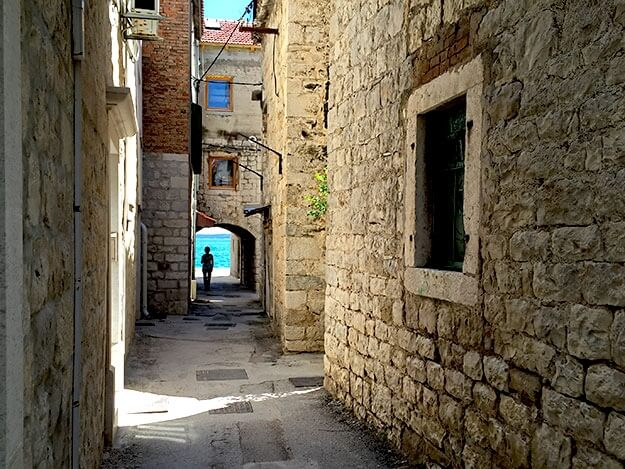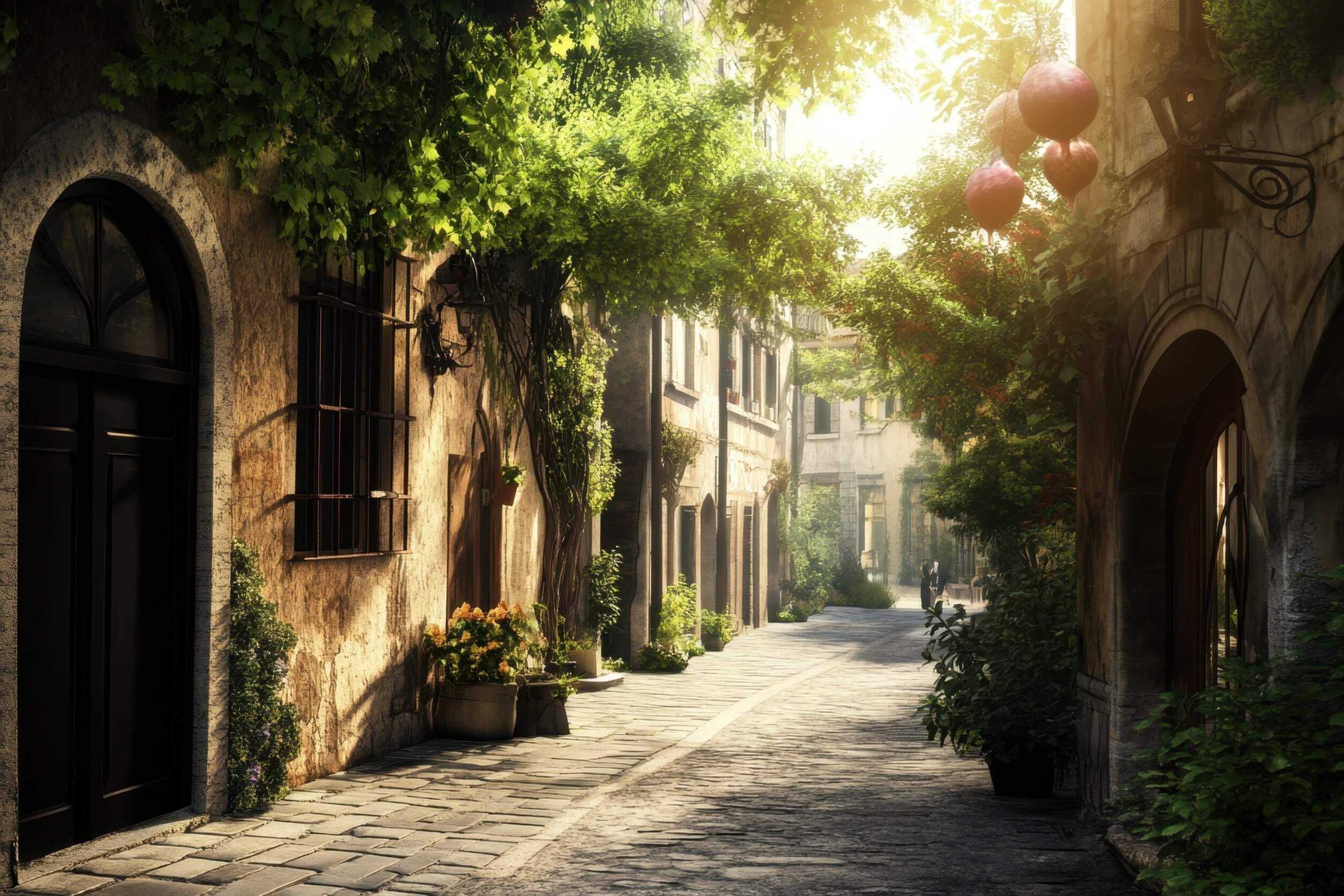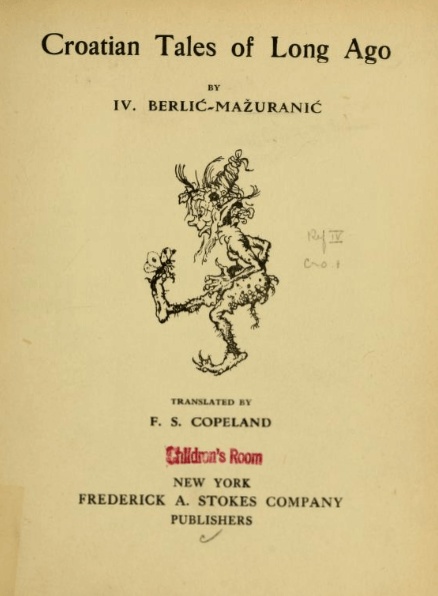We hope to welcome you to Cavtat and the stunning Dalmatian coast for the 2025 TAICEP Conference! This brief introduction to Croatian literature is the first in a series of insights we will be sharing, designed to offer you a deeper understanding of Croatia's spirit, culture, and what awaits you at the TAICEP conference.
As you prepare to settle into the rhythm of the Adriatic, an examination of Croatian literature is a key to understanding the country itself-a way to grasp the spirit of the place you are visiting from the inside out. Croatia's soul has long been shaped by two powerful currents: the sun-drenched, resilient spirit of the Mediterranean and the weighty, intellectual legacy of being a historical crossroads in Central Europe. The following is a "tasting menu" of three essential authors whose work captures these flavors. By sampling their words, you sample the essence of Croatia itself.
1. The Adriatic Spirit: Irony and Rebellion
To understand the coast, you must understand its people-their wit, their fatalism, and their deep connection to the sea and stone. The untranslatable word fjaka captures this worldview-a sublime state of listlessness and apathy, a mental escape from the summer heat and the hardships of life on a beautiful but unforgiving coast. No one illustrates this spirit better than Ranko Marinković (1913-2001), a master of Mediterranean irony.
In his most famous short story, "Hands" ("Ruke"), this philosophy comes to life in an argument between a man's two hands. The diligent, productive "Right Hand" represents the world of work and conformity. The idle, intellectual "Left Hand," which does nothing but gesture and philosophize, embodies the spirit of fjaka-a rebellion through contemplative inaction. The Left Hand argues:
"I only want to prove that my existence is not altogether superfluous… that this so-called 'laziness' of mine is, in fact, a kind of protest. A protest against the stupidity that has been imposed upon me as a life principle, as a rule of the game. I simply do not want to participate in that game. I have a right to my own game."

In this brilliant allegory, Marinković elevates laziness to a form of intellectual resistance. He captures the essence of the Dalmatian spirit: a profound skepticism of imposed authority and a belief that true freedom is sometimes found not in what you do, but in what you refuse to do.
2. The Weight of History: The Individual vs. The System
Croatia's history is a complex tapestry woven from the threads of neighboring empires, most notably the Austro-Hungarian. This legacy created a deep intellectual tradition in the capital, Zagreb, of questioning authority and the hypocrisy of polite society. The giant of this tradition is Miroslav Krleža (1893-1981), a writer whose work relentlessly dissects the great political and social questions of the 20th century.
In his novel "On the Edge of Reason" ("Na rubu pameti"), a respectable, middle-aged lawyer at a formal dinner party decides, suddenly and irrevocably, to stop telling the "hygienic minimum of lies" required to function in society. When a powerful industrialist boasts of his criminal past, instead of nodding politely, our protagonist calls him out. This single act of truth-telling shatters his life. He reflects on the madness of his honesty:
"For twenty years I had been silent; for twenty years I had been smiling, bowing, and scraping… I had been playing the game and had kept my mouth shut. And now, all of a sudden, this insane, incomprehensible, and utterly unnecessary attack of sincerity! It was a pathological phenomenon, a fit, an attack of some kind of moral epilepsy. To blurt out the truth in the middle of a formal dinner!"

Krleža's novel is a blistering satire of bourgeois society, arguing that what we call "reason" is often just a collective agreement to ignore uncomfortable truths. His work reveals the fierce individualism at the heart of the Croatian experience-a constant struggle to stay sane in a world built on convenient falsehoods.
3. The Modern Voice: Navigating Invisible Borders
What does it mean to belong to a place whose very name and borders have been redrawn by history? How do you find a sense of "home" in a landscape that is saturated with memory, loss, and constant change? The celebrated contemporary writer and journalist Slavenka Drakulić (born 1949) explores these profound questions with a sharp, humane eye, arguing that the most significant borders are not the ones on a map, but the ones we carry within ourselves.
Living through the dissolution of her birth country, Yugoslavia, Drakulić became a powerful witness to how political turmoil changes not just nations, but the very souls of the people within them. She writes about the feeling of becoming a stranger in your own homeland, where the language, the memories, and even the sense of shared identity can feel fractured. In her powerful collection of essays, "The Balkan Express," she reflects on this internal exile and the nature of borders, both real and imagined:
"I carry my own border with me, a border that is more real than the state one... It is a feeling of being 'other,' of being different. This is the border that separates me from the people I live with, from the culture I belong to. It is a border that is invisible, but it is there."

This perspective speaks to a universal human experience: our sense of self is deeply tied to our sense of place. Drakulić's work is an invitation to consider the invisible borders that shape all of our lives-the lines drawn by personal history, by memory, by loss, and by our powerful, enduring love for a homeland that is both a real place and an idea we carry within our hearts.
Further Reading: Freely Available Croatian Classics
For those whose curiosity is piqued, the following classic works are in, or soon to be in, the public domain and are available to read in their entirety online.
- Poetry:Tin Ujević, "Daily Lament" Tin Ujević (1891-1955) is one of Croatia's most beloved poets, a bohemian icon whose work is synonymous with the vibrant café culture of Zagreb. His work enters the public domain on January 1, 2026. "Daily Lament" ("Svakidašnja Jadikovka") is one of his most powerful poems, a moving reflection on life, spirit, and suffering.
- Until next January, you can purchase his poems here: Twelve Poems.
- Folklore:Ivana Brlić-Mažuranić, "Croatian Tales of Long Ago." Known as the "Croatian Hans Christian Andersen," Ivana Brlić-Mažuranić (1874-1938) transformed ancient Slavic myths into timeless fairy tales. This collection is a cornerstone of Croatian culture, filled with magical creatures and brave heroes. It offers a wonderful look into the nation's deep mythological roots.
- Read the whole book here (free): Croatian Tales of Long Ago.

Next, we will tantalize your taste buds by exploring how Dalmatian cuisine tells a profound story of empires, trade routes, and local identity, offering a truly 'edible artifact' of history on your plate.
On behalf of TAICEP leadership and the Conference Committee,
Pei (Peggy) Zhu, TAICEP President
Manager, Comparative Education Service, University of Toronto

